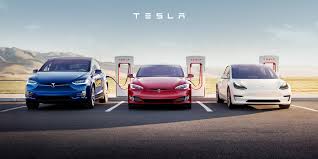
Breaking News
Importing Poverty into America: Devolving Our Nation into Stupid
 Grand Theft World Podcast 273 | Goys 'R U.S. with Guest Rob Dew
Grand Theft World Podcast 273 | Goys 'R U.S. with Guest Rob Dew
 Anchorage was the Receipt: Europe is Paying the Price… and Knows it.
Anchorage was the Receipt: Europe is Paying the Price… and Knows it.
 The Slow Epstein Earthquake: The Rupture Between the People and the Elites
The Slow Epstein Earthquake: The Rupture Between the People and the Elites
Top Tech News
 Drone-launching underwater drone hitches a ride on ship and sub hulls
Drone-launching underwater drone hitches a ride on ship and sub hulls
 Humanoid Robots Get "Brains" As Dual-Use Fears Mount
Humanoid Robots Get "Brains" As Dual-Use Fears Mount
 SpaceX Authorized to Increase High Speed Internet Download Speeds 5X Through 2026
SpaceX Authorized to Increase High Speed Internet Download Speeds 5X Through 2026
 Space AI is the Key to the Technological Singularity
Space AI is the Key to the Technological Singularity
 Velocitor X-1 eVTOL could be beating the traffic in just a year
Velocitor X-1 eVTOL could be beating the traffic in just a year
 Starlink smasher? China claims world's best high-powered microwave weapon
Starlink smasher? China claims world's best high-powered microwave weapon
 Wood scraps turn 'useless' desert sand into concrete
Wood scraps turn 'useless' desert sand into concrete
 Let's Do a Detailed Review of Zorin -- Is This Good for Ex-Windows Users?
Let's Do a Detailed Review of Zorin -- Is This Good for Ex-Windows Users?
 The World's First Sodium-Ion Battery EV Is A Winter Range Monster
The World's First Sodium-Ion Battery EV Is A Winter Range Monster
 China's CATL 5C Battery Breakthrough will Make Most Combustion Engine Vehicles OBSOLETE
China's CATL 5C Battery Breakthrough will Make Most Combustion Engine Vehicles OBSOLETE
The Reason Tesla Spent $218 Million On Maxwell Technologies

Tesla's acquisition of battery supplier Maxwell Technologies went mostly unnoticed by the mainstream press, but it could have a tremendous influence on the future of the California carmaker, and of the entire auto industry.
Maxwell, which was founded in 1965 as a government contractor, is based in San Diego and has about 380 employees. The company has gotten a lot of coverage in the EV press, mainly because of its innovations in the realm of ultracapacitors. The astute will recall that Elon Musk was planning to study ultracapacitors when he arrived at Stanford in the 1990s.
However, Electrek's Fred Lambert surmises that Tesla's acquisition of Maxwell may have little to do with ultracapacitors, and much to do with "dry electrodes," which the company calls "a breakthrough technology that can be applied to the manufacturing of batteries."
Maxwell claims to have demonstrated that its proprietary electrode can enable an energy density of over 300 Wh/kg, and predicts that it can achieve over 500 Wh/kg. Of course, the energy density of Tesla's batteries is top secret, but it's widely believed to be the best in the industry.



